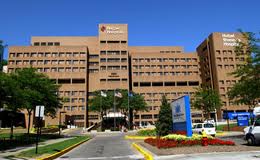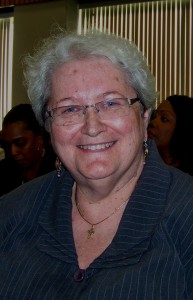A FOUR-PART IN-DEPTH ANALYSIS OF DEAL
BY DIANE BUKOWSKI
Blackstone owns 70% of Vanguard; CEO compared Obama to Hitler
DETROIT – Michigan Attorney General Mike Cox will announce his decision on the transfer of the Detroit Medical Center to Nashville-based Vanguard Health Systems by Sept. 15, according to Vanguard’s Aug. 26 SEC filing.
Deputy Chief Attorney General Carol Isaacs called the transaction, valued at $1.2 billion, one of the largest in the nation. She spoke at a little-publicized “community” forum Aug. 18 at Cadillac Place in Detroit.
The non-profit DMC provides the largest amount of indigent and uninsured care in Michigan, and is currently in the black. Vanguard, a for-profit, just announced losses of $49 million for the fiscal year ended June 30.
Vanguard is 70 percent owned by the Blackstone Group, a global private equity firm, with assets of $78 billion. In July, Blackstone’s CEO Stephen Schwarzman compared President Barack Obama to Hitler, because Obama proposed to raise taxes on the private equity sector.
“It’s a war,” Schwarzman said. “It’s like when Hitler invaded Poland in 1939.” He later apologized for the comparison, but not for his opposition to paying Blackstone’s fair share of taxes.
Forum participants debate deal
Many attendees at the Aug. 18 forum, primarily DMC and Vanguard executives, politicians, and members of the “Unified Detroit Coalition,” enthusiastically supported the proposed transaction, claiming they had thoroughly researched its advantages.

DMC board chair Stephen D'Arcy at far left, Vanguard's Trip Pilgrim and DMC CEO Mike Duggan at center, DMC general counsel Floyd Allen at right
“Two-thirds of the non-profit hospitals in Detroit have closed,” DMC CEO Mike Duggan, red-faced with excitement, said. “People are emotionally clinging to the romanticized ideas of non-profits, but there are beautiful facilities in the suburbs that we need to copy. The transformation to a for-profit will actually increase access to the uninsured.”
Ironically, the suburban Detroit hospitals to which Duggan referred are all non-profits. Michigan currently has only one for-profit hospital, Doctor’s Hospital in Pontiac.
Trip Pilgrim, of Vanguard Health Systems, said, “Our hospitals in San Antonio give more charity care than religious-based systems, and in Chicago, more charity care than 78 percent of the non-profits.”
He did not note that the provision of “charity care” brings hefty economic advantages that derive from public tax dollars. These include federal Medicaid, Medicare and Disproportionate Share Hospital (DSH) payments for hospitals who treat large numbers of indigent patients.
Others at the forum, including members of the Coalition to Protect Detroit Health Care and grass roots community representatives, spoke strenuously against the deal. They also cited extensive research, and their fears that the transfer would seriously harm generations to come.
“Health care has become just another commodity in the marketplace,” Sister Mary Ellen Howard of MichUHCAN (Michigan Universal Health Care Access Network) said. “There is a desperate need to recover a sense of the common good in a world that puts a price on everything and values nothing. The DMC is the closest thing we have to a public hospital in Detroit. Will unprofitable services like OB-GYN and emergency care be cut to pay larger dividends to Vanguard’s stockholders?”
Duane Montgomery, a community activist who has run for several political offices, said, “If the sale goes through, I will file for a writ of mandamus [an action contesting the authority of a public official, e.g. Cox]. What is the value of the DMC, what are the salaries of its board members? DMC is in the black. Why couldn’t Duggan get Wall Street to lend it money? How can we allow a 10-year limit on charitable care? If a Detroiter gets pregnant or shot, they go to Harper or Detroit Receiving. The DMC is all we have. Thirty-three percent of Detroiters live below the poverty level. The decision Cox makes will affect my kids and grandkids.”
Attorney Gary Benjamin, a public health care specialist who is also with MichUHCAN, questioned the transfer’s legality as well.
“It does not appear that the sale of a not-for-profit to a for-profit corporation is legal under [state law].,” Benjamin said. “Since it is clear that Vanguard will be using the not-for-profit assets for ‘non-charitable’ purposes, there is a significant question as to whether this sale is legal even with the approval of the Attorney General.”
PE firms “hurt the companies they owned, their customers and employees”
Josh Kosman, author of “The Buy-out of America,” published in 2007, critiqued Vanguard’s dealings in the health care sector, citing the closure or sale of unprofitable hospitals and services, lay-offs, and poor patient care. Kosman, an expert on private equity, or “buy-out” firms, previously reported for three trade publications, The Buy-Out Newsletter, The Daily Deal and the on-line mergermarket, for eight years.
In his prologue, Kosman explains the machinations of PE firms like Blackstone.
”I knew from my reporting that these faceless PE firms, with names like Blackstone Group and Carlyle Group, were not helping the companies they acquired,” he says. “Just the opposite—the PE firms put the companies they acquired under more intense pressure than they would ever feel in the public markets. Their actions hurt the companies they owned, their customers and employees.”
He says, “They ran something like a legal shell game. They bought companies with other people’s money by structuring acquisitions like mortgages. The critical difference is that while we pay our mortgages, the PE firms had the companies they bought take the loans, making them responsible for repayment. Typically PE firms put down cash equal to between 30 percent and 40 percent of the purchase price, and their acquired companies borrowed the rest. They then try to sell the companies within five years.”
At last report, Vanguard Health Systems was $1.8 billion in debt. DMC officials claim the debt is actually a vote of confidence from Wall Street.









